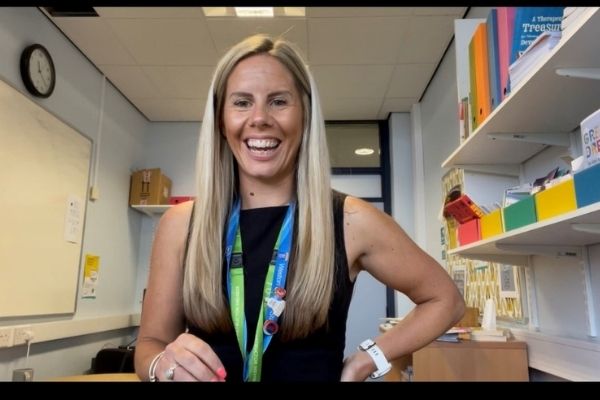Emotional recovery language in FE - what’s yours?
Resilience. Recovery. Building back better. Reconnection and Re-engaging: These are common words in the current landscape of education and workplaces and was the topic of a recent SET Special Interest Group event I was invited to attend, writes Georgie Ford, Advanced Practitioner in Mental Health and Wellbeing at Weston College.

Georgie Ford
The focus is undoubtedly on the wellbeing of students and staff as we return from a global pandemic, but in this informal group one Friday lunchtime, we discussed how there must be some considerations for how the language used to brand this return can significantly impact wellbeing. Institutions with wellbeing at their heart should define a meaning of recovery that is individual to them and their authentic wellbeing purpose.
Learning and communication are social activities, and it is highly unlikely that learning will take place as we have known it previously due to disengagement of human connection. Therefore, we may need to rethink approaches to learning to include an understanding of the emotional experiences of Covid-19.
Emotional recovery framework
Emotions drive our mental health and wellbeing; our initial cognitive processing results in emotions, which will then guide the more complex behaviour, resulting in behaviour. Our emotions can alter our perceptions. With this in mind, Weston College has developed an emotional recovery framework, driven by our transformational leader, Dr. Paul Phillips, who possesses a genuine and authentic belief in wellbeing mechanisms of every person within his organisation.
The framework is adaptable to your organisation or educational establishment. It begins with emotion differentiation and recognises the sheer importance of being able to distinguish and label emotions. If humans are unable to do this (and it is quite a skill that is often not taught) then effective problem solving is unlikely. We should encourage exploration of emotion and break down the wider terms such as “I’m stressed” or “I’m angry”. Breaking these down allows for accurate and effective problem solving and we can understand the precise cause of our feelings. Many emotional literacy frameworks begin with the art of being able to accurately recognise what we are feeling because there are significant differences between relationship and work stress for example.
The framework also equips people with the skills of individualising their communication with emotions in mind and considers the effect of seemingly simple questions such as “How are you”? This seemingly simple question requires us to connect to our inner emotions but often we respond with “I’m fine”. We encourage consideration of how people may be hearing your communication.
Understanding the emotional aspects of stress, burnout and invisible stressors of Covid-19
What words are you using and what do they trigger in others? Brains are designed to judge, often in less than 60 seconds but as humans, we all have prior emotional experience and schemas that will dictate how we hear the communication. In addition, the framework allows participants to understand the emotional aspects of stress, burnout, and the chronic invisible stressors of Covid-19. We must become adept and dealing with emotional stress, it is often not enough to remove the external stressor, after all, we are emotional beings with cognitions. The emotional experience that accompanies stressful events requires processing; the emotional tunnel must be complete.
The framework culminates with an exploratory journey through the critical skill of empathy and the ability to accept and allow authentic emotional experience within our environments. As humans, we often deploy mechanisms such as humour and deflection when we feel uncomfortable and we wish to fix and silver line in situations where it just may not be possible, such as Covid-19. If we can fix and focus on the positive, we ourselves feel significantly better but we may be undermining emotional experience and opportunity for true resilience to flourish. Resilience itself is rooted in our emotional state.
Impact of blended learning on emotional skills and abilities
We must consider the impact of blended learning on our emotional skills and abilities. What is our webcam presence communicating to our colleagues, friends, and students? As humans, we thrive on emotional feedback and interaction which is significantly lessened in the digital world. A smile tells us people are enjoying our content and we are immediately validated. With webcams switched off, this is simply not possible. We can be present on a webcam without ever being fully present. There is an emotional aspect to digital working and communication, turning a webcam on alone requires an element of self-confidence.
The framework will be launched in September as a Weston College training initiative alongside the SEND Centre for Excellence, and will include live training, environmental support sessions and networks. Please contact georgie.ford@weston.ac.uk for more information.
Further information
SET will be launching further special interest group events from September. Special Interest Group events are online events that allow you to connect and interact with peers and practitioners from across the sector with shared topical interests.
If you would like to be the first to know about these exclusive member events, log in to your member dashboard and update your special interests and be first to receive an invite.






